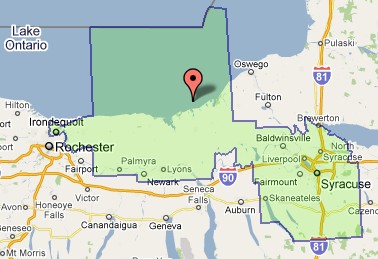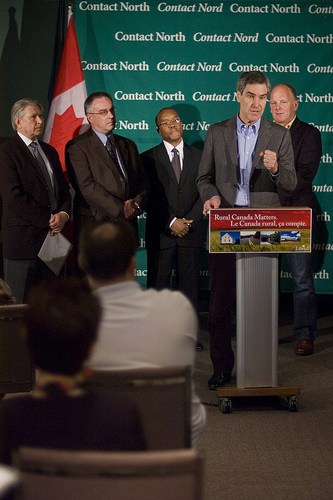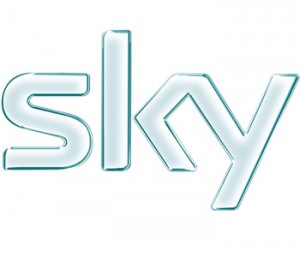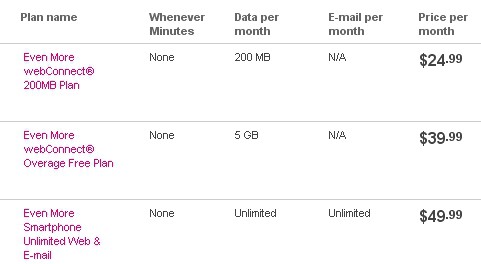Rep. Dan Maffei (D-New York) has begun to worry broadband consumers in his western and central New York district.
In April 2009, when Time Warner Cable’s announced Internet Overcharging experiment was upsetting customers in Rochester, Maffei claimed he was concerned about limiting broadband usage for customers in the area. But when former Rep. Eric Massa introduced legislation to ban unjustified usage caps and consumption billing, Maffei told his constituents he wasn’t interested in Massa’s approach:
Thank you for contacting me regarding H.R. 2902, the Broadband Internet Fairness Act. I appreciate hearing from you and welcome the opportunity to respond. The Broadband Internet Fairness Act was introduced by Representative Eric Massa (NY-29) on June 16, 2009, and was referred to the Committee on Energy and Commerce. The bill would authorize the Federal Trade Commission (FTC) and the Federal Communications Commission (FCC) to review volume usage service plans of major broadband internet service providers to ensure that such plans are fairly based on cost.
When Time Warner Cable announced in April that Rochester would be used as a test market for charging Internet users based upon consumption usage, I, along with Representative Massa, opposed this policy. We helped persuade Time Warner to abandon the plan in the area. At that time, Representative Massa also introduced the Broadband Internet Fairness Act.
Other utilities, like water or electricity, charge customers based on usage, but Internet users have traditionally been charged a flat fee for unlimited access to the web. The Broadband Internet Fairness Act would require Internet Service Providers that want to implement usage-based pricing plans to go through several traditional regulatory hurdles. While I share many of the goals of Representative Massa’s legislation, I do not believe passing this stand-alone bill is the right approach at this time.
Of course broadband is nothing like water or electric utilities. In fact, Maffei’s inclusion of that reference is a classic talking point of the telecom industry. Notice they, and Maffei, didn’t mention telephone service — the one utility that provides flat rate calling for most Americans. It also happens to be the utility most comparable to broadband service!
But Maffei made a bad situation worse when he joined 72 other House Democrats co-signing a letter from Rep. Gene Green (D-AT&T), urging FCC Chairman Julius Genachowski not to fight a court decision overturning the agency’s ability to conduct broadband oversight.
The letter represented one giant talking point — the false premise that enforcing a fair, free, and open Internet with Net Neutrality would somehow stifle investment in broadband expansion. Yet AT&T was required to honor the very same principles when it merged with SBC, and managed to remain a multi-billion dollar powerhouse well positioned to expand broadband service to additional customers in its ever-growing service areas.
The fact the broadband industry is a duopoly for most Americans — one that can threaten to pull back on service if it doesn’t get its way in Washington — is just one more reason the industry requires more oversight, not less.
Yet Rep. Maffei stood alone as the only member of the western New York Congressional delegation to sign his name to the agenda of big cable and phone companies.
Perhaps the congressman has forgotten these facts which trouble broadband consumers across western and central New York:
- Rochester, NY was the only city in the northeast where Time Warner sought to conduct an Internet Overcharging experiment, made possible because of limited competition in the Rochester market;
- Rochester’s other broadband provider, Frontier Communications, insists on a monthly usage allowance of just 5GB per month in its Acceptable Use Policy;
- Verizon FiOS has suspended expansion indefinitely and the service will never be available in most of the 585 area code where Frontier operates, and it will take years for most of the rest of his Syracuse district to see the service reach those areas;
- Time Warner Cable increased its broadband rates in 2010, as did Verizon;
Green’s letter dances around the real issue — telecommunications companies are spending millions to oppose pro-consumer reforms and stop a return of oversight authority the FCC lost after a recent court decision. Without this authority, the FCC cannot implement the National Broadband Plan’s insistence that American providers not block or impede network traffic. These Net Neutral policies preserve net freedom. The FCC cannot even require that providers tell the truth about broadband speeds and include the company’s terms of service in plain English.
Western New York is a hotbed of consumer activism on broadband issues, particularly because we are actual victims of provider abuse. No one knows more than we how critical 21st century broadband is to the transformation of this region’s perennially challenged economy.
Rep. Maffei needs a reminder this is a hot button issue for consumers from Irondequoit to Manlius. Perhaps he just doesn’t fully understand what’s at stake here. You need to remind him.
We’ve included a suggested letter you can use to help write your own. For maximum effectiveness, include some of your own personal stories, challenges, and frustrations with your local broadband provider. Feel free to share yours in the Comments section.
Dear Rep. Maffei:
I was extremely disappointed to discover you signed your name on a letter written by Rep. Gene Green urging FCC Chairman Julius Genachowski not to restore oversight authority over broadband. While Rep. Green’s letter illustrates he’s mostly concerned about the well being of AT&T, Verizon, Time Warner Cable and Comcast, as a consumer I am more concerned about the broadband duopoly that exists in Rochester & Syracuse.
If the FCC does not regain its ability to oversee broadband by reclassifying it under Title II — as a telecommunications service (which it very clearly is), the FCC can effectively do nothing to stop broadband provider abuses, such as Comcast’s notorious speed throttle on customers using certain Internet websites and services. It took an FCC investigation to finally get the cable company to admit the truth — it was interfering with customers’ broadband speeds. The oversight power the agency had was just what was needed to convince Comcast to stop.
Unfortunately, a DC Circuit Court recently disagreed it had that authority and effectively stripped it away. Chairman Genachowski is simply seeking a return to the status quo before that court decision was handed down. He’s not asking to regulate broadband anything like telephone service. In fact, he’s insisted on a “light touch.” That’s better than today’s court-imposed total-hands-off reality.
By signing Rep. Green’s letter, you effectively tell us you don’t support Net Neutrality protections that guarantee providers cannot censor or impede web traffic. You also do nothing to protect consumers from other provider abuses. Considering what residents of Rochester went through last year fighting a Time Warner Cable scheme that would have tripled broadband prices for the same level of service, I’m shocked you of all people would be a supporter of big telecom’s agenda.
Telecom companies are claiming that if regulations enforcing Net Neutrality are enacted, investment will suffer and broadband expansion will be slowed. Yet AT&T was required, as part of its merger with SBC, to respect Net Neutrality for several years. The company flourished, broadband was offered to more customers than ever, and investors liked what they saw.
The record in western New York is clear — Time Warner Cable was willing to limit its customers access to broadband service, Frontier already does in its terms and conditions, and Verizon FiOS deployment has been suspended indefinitely. For too many of us, there are too few choices. In fact, the only thing we can be assured of is higher pricing and a strengthened duopoly.
I strongly urge you to remove your signature from Rep. Green’s letter and get on board with consumers like myself in your district who believe deregulation and oversight failures have given us nothing but nightmares — from Wall Street to BP’s oil spill. Let’s not make another mistake in handing cable and phone companies unfettered permission to abuse their customers.
Please get back in touch with me as soon as possible on this important matter.
Rep. Dan Maffei told constituents he was concerned about Time Warner Cable’s Internet Overcharging scheme proposed in April 2009. At a town hall meeting in Irondequoit, New York, he admitted Time Warner Cable held near-monopoly power over consumers in Rochester. What changed his tune when he signed on to Rep. Gene Green’s anti-consumer letter to the FCC? (April 9, 2009 — 2 minutes)
Rep. Dan Maffei’s Contact Information
Washington, D.C. Office
1630 Longworth HOB
Washington, DC 20515
Phone: (202) 225-3701
Fax: (202) 225-4042
Syracuse Office
P.O. Box 7306,
1340 Federal Building
Syracuse, NY 13261
Phone: (315) 423-5657
Fax: (315) 423-5669
Irondequoit/Rochester Office
1280 Titus Avenue
Rochester, NY 14617
Phone: (585) 336-7291
Fax: (585) 336-7274
[Update: 11:30pm EDT: Free Press reports Rep. Maffei accepted $29,000 in contributions from telecom companies, including Verizon, Comcast, and AT&T.]


 Subscribe
Subscribe









